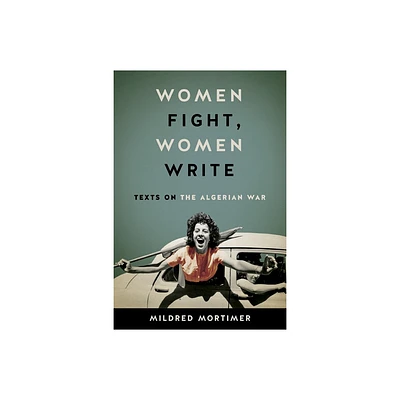Home
Recovering Identity: Criminalized Women's Fight for Dignity and Freedom
Loading Inventory...
Barnes and Noble
Recovering Identity: Criminalized Women's Fight for Dignity and Freedom
Current price: $34.95


Barnes and Noble
Recovering Identity: Criminalized Women's Fight for Dignity and Freedom
Current price: $34.95
Loading Inventory...
Size: Paperback
*Product Information may vary - to confirm product availability, pricing, and additional information please contact Barnes and Noble
A free ebook version of this title is available through Luminos, University of California Press's Open Access publishing program. Visit www.luminosoa.org to learn more.
Recovering Identity
examines a critical tension in criminalized women's identity work. Through in-depth qualitative and photo-elicitation interviews, Cesraéa Rumpf shows how formerly incarcerated women engaged recovery and faith-based discourses to craft rehabilitated identities, defined in opposition to past identities as "criminal-addicts." While these discourses made it possible for women to carve out spaces of personal protection, growth, and joy, they also promoted individualistic understandings of criminalization and the violence and dehumanization that followed. Honoring criminalized women's stories of personal transformation, Rumpf nevertheless strongly critiques institutions' promotion of narratives that impose lifelong moral judgment while detracting attention from the structural forces of racism, sexism, and poverty that contribute to women's vulnerability to violence.
Recovering Identity
examines a critical tension in criminalized women's identity work. Through in-depth qualitative and photo-elicitation interviews, Cesraéa Rumpf shows how formerly incarcerated women engaged recovery and faith-based discourses to craft rehabilitated identities, defined in opposition to past identities as "criminal-addicts." While these discourses made it possible for women to carve out spaces of personal protection, growth, and joy, they also promoted individualistic understandings of criminalization and the violence and dehumanization that followed. Honoring criminalized women's stories of personal transformation, Rumpf nevertheless strongly critiques institutions' promotion of narratives that impose lifelong moral judgment while detracting attention from the structural forces of racism, sexism, and poverty that contribute to women's vulnerability to violence.


















